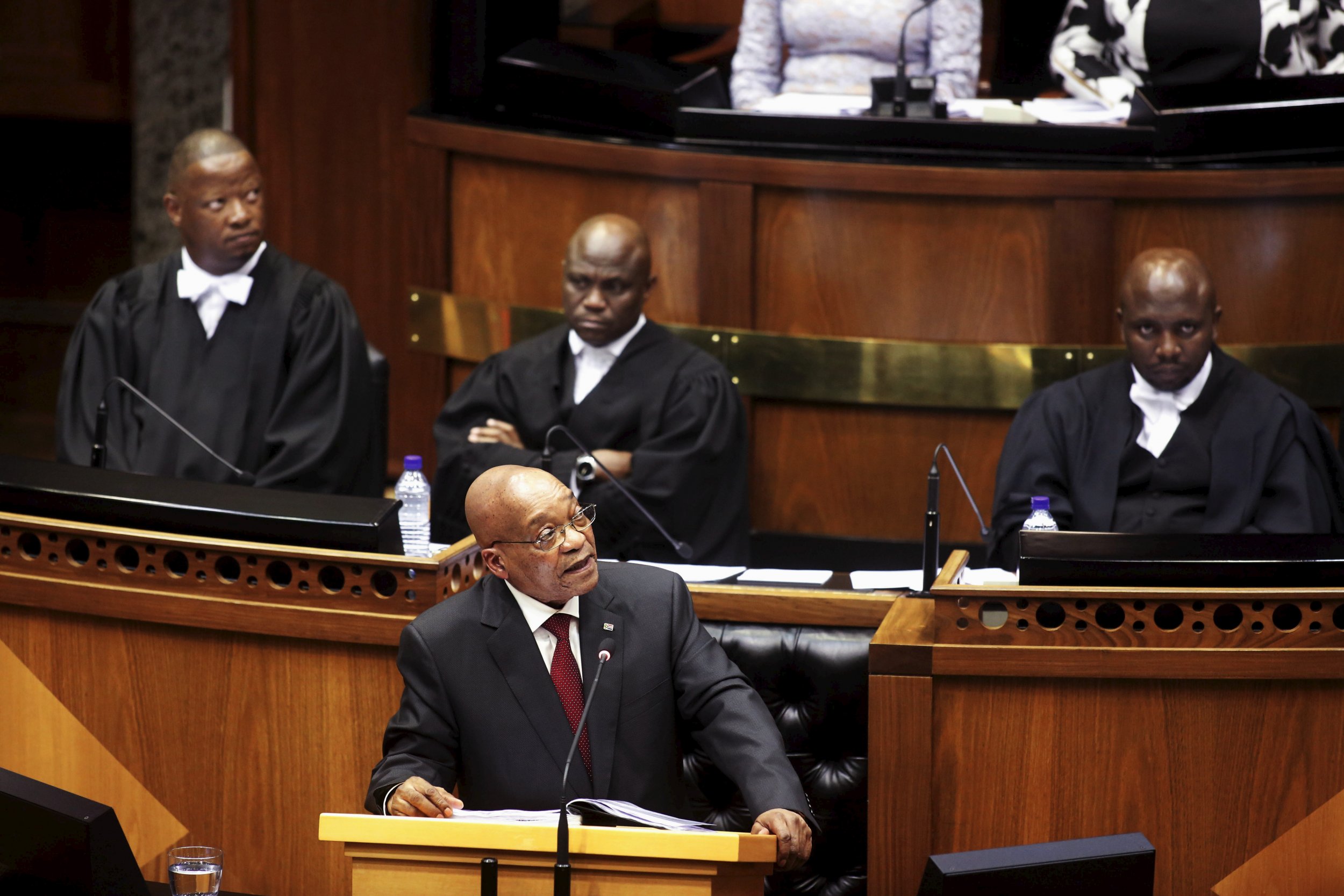
South African President Jacob Zuma's state of the nation address was a lively affair, touching on racism and the struggling economy and featuring vocal criticism from leftwing opponents.
Zuma opened the South African parliament in Cape Town on Thursday after having appeared in the Constitutional Court on Tuesday regarding the Nkandla scandal. A 2014 report by South Africa's Public Protector found that Zuma spent 246 million rand ($23 million at the time) making state-funded improvements to his homestead in Nkandla, eastern South Africa. The improvements included a swimming pool, amphitheater and cattle enclosure.
In Tuesday's hearing, Zuma made a dramatic U-turn after years of denying that the Public Protector's report—which had recommended Zuma pay back the cost of some of the improvements—was binding. Zuma's advocate admitted the South African president was wrong to ignore the report's findings.
The Nkandla case was brought by opposition parties the Economic Freedom Fighters (EFF) and the Democratic Alliance (DA), and on Thursday the EFF was in no mood to let Zuma forget it. During the president's address, Julius Malema, the EFF's charismatic leader, said that Zuma had turned South Africa into a "joke" and "is no longer a president that deserves respect from anyone."
Malema and his troop of EFF MPs, dressed in their trademark red overalls, were eventually ejected from the chamber, chanting "Zupta must fall"—a reference to alleged links between Zuma and the Guptas, a wealthy business family whose Sahara Group computer company turns over around 200 million rand ($13 million), according to the BBC.
After all the commotion, Zuma turned to the difficult topic of the economy. South Africa's economy is predicted to grow less than 1 percent in 2016, the BBC reported, and the country's unemployment rate remains one of the highest in the world at around 25 percent. Zuma's handling of the country's economy was questioned earlier, in December 2015, when he replaced former Finance Minister Nhlanhla Nene with the relatively unknown David van Rooyen, only to then remove van Rooyen after less than a week in office.
Zuma said on Thursday that he had "heard the suggestions from the business community on how we can turn the situation around" and added that South Africa was looking to attract foreign investment. He also pledged to cut costs by reducing government expenditure, curtailing overseas trips by ministers and shrinking the size of delegations.
The president also touched on racism, which has been part of the public debate in recent months. Zuma's African National Congress (ANC) said in January it would push to criminalize "any act that perpetuates racism or glorifies apartheid" following a Facebook post by Penny Sparrow, a real estate agent and former DA member, that referred to black people as "monkeys", provoking national outcry. The DA suspended Sparrow's membership and lodged criminal charges against her as a result.
"There is a need to confront the demon of racism," said Zuma on Thursday, adding that South Africa would commemorate Human Rights Day on March 21 as a national day against racism.
Uncommon Knowledge
Newsweek is committed to challenging conventional wisdom and finding connections in the search for common ground.
Newsweek is committed to challenging conventional wisdom and finding connections in the search for common ground.
About the writer
Conor is a staff writer for Newsweek covering Africa, with a focus on Nigeria, security and conflict.
To read how Newsweek uses AI as a newsroom tool, Click here.








